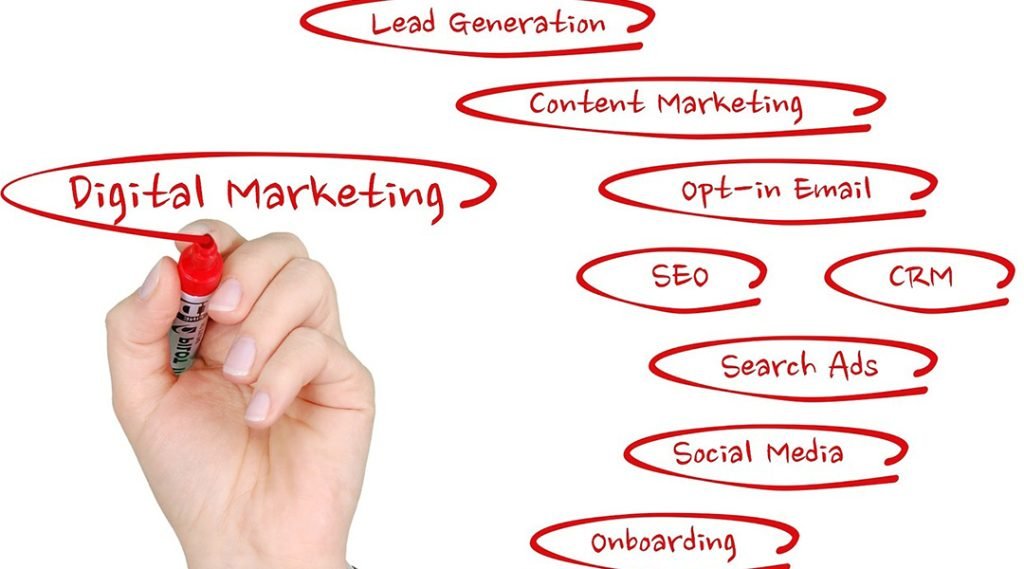It has been another big year for marketing. We’ve seen plenty of developments and plenty of new trends in the industry. The big question is what does the new year of 2024 hold in store for us.
At InSynch, we don’t have fortune-tellers to predict the next big hit. We have something better than that: teams of qualified digital marketing experts who have all weighed in on what they think you should be prepared for in the new year.
Search engine optimisation has always been an ever-evolving field with one goal: Providing high-quality and personalised search results. In the last few years, search engines struggled with misinformation, manipulative content, and growing dissatisfaction in their service. In 2023, they are finally starting to come out on top with every update.
Google and Microsoft’s recent adoption of user-interactive AI into their portfolio is allowing them to understand intent and context behind their users requests. Their algorithms are also getting better at understanding context in content, and what defines weak, and spammy content.
That said, Google’s Search Generative Experience – which would change how users interact with their search engine for information requests – has missed its intended release date of December 2023. It still has many hurdles to jump before it can be an effective replacement for information requests on the search engine.
User interaction is also becoming easier for search engines to understand. With GA4, Google is better able to track individual user interactions with a website, and uses this to estimate how satisfied they are with their search results. Before it measured bounce rates, which were not accurate in.
Our Prediction for SEO in 2024
What does this mean for SEO? If you are writing blogs or website pages to boost your rankings, you want it to be relevant to your audience and valuable to them. We expect there will be several months (if not another year) before Google’s SGE upheaves how we approach informational content. Untill then, you are still contending with improved algorithms judging content by how users engage with it. For example, if search engines detect users leaving a search result without engaging with it, that can be a detriment to subsequent searches by other users.
Obsessing over keywords and links is an increasingly smaller piece of the SEO puzzle. How your website will handle the user experience and leave them satisfied will affect your rankings just as well.
Generative AI tools have undertaken a massive revolution throughout the time we have discussed them on our blog. Right now they’re amazing tools for brainstorming ideas, helping you rewrite paragraphs, and even edit images. If you are ever stuck when creating an ad or a content piece, these tools can competently fish you out of that rut.
Many marketing platforms like Mailchimp and Canva are rolling out their platform specific tools that are helping to bridge the experience gap and cut down time spent creating quality assets and content for your audiences.
Though, it’s important to remember that the tools we call AI aren’t actually intelligent or sentient. These tools lack basic intuition and cannot come up with strategies ahead of the curve to benefit your business. And that is something inherent to how generative AI works, it learns on what already exists. Only the development of AI in the more traditional sense can bridge this gap.
Furthermore, AI generated content and adverts are becoming associated with drop-shipping scams, which consumers are becoming wary of. As these scams and their awareness campaigns become more known, it will become essential to establish trust with your audience and resist the temptation to solely rely on machines doing the work for you.
Our Prediction for Content Marketing in 2024
There is still plenty of room for drastic changes in the generative AI industry and the way businesses use it in 2024. Legislation and lawsuits on the ethical usage of AI is still in the works, though these are focussed on copyright and data gathering issues. While these won’t forbid the use of AI in marketing if successful, it may affect pricing and quality of content you generate in the future.
Remember, generative AI should enhance your strategy, not replace it. These tools will help you bridge skill gaps and save time on marketing efforts, but we do expect some pushback from consumers as the scene becomes saturated in it. Being lazy with the presentation of your brand through your content, communications, and adverts only risks putting off your audience.
Aside from content creation, AI engineers are aiming to revolutionise the virtual assistant experience too. Amazon is intergrating this tech with Alexa to improve how it responds to audio prompts as well as the experience of shopping on their website. There are also AI chatbots that try to answer simple questions your customer has, reducing the workload placed on customer service teams.
Another interesting feature being tested with AI is product suggestions, with focus on accuracy towards what the consumer wants. For example, if you ask for “Blue tiles for a bathroom floor”, the assistant will identify products from your store matching your criteria. The idea is to improve the customer experience, saving them time from browsing a large website with hundreds of different products.
Again, this new technology can be a double-edged sword. According to data gathered by the CDP, only 34% percent of people found AI chatbots helpful, and the remaining found them in need of improvement or outright irritating. When asked what could improve their experience, 64% said they wanted to talk to real people. People still relate more to a human touch than a hands-off or corporate approach, influencer marketing remains a strong source of revenue for this reason.
Our Predictions for Ecommerce Marketing in 2024
We’re expecting more tools like virtual assistants to utilise generative tech to create tailored shopping experiences that can be integrated into websites. Businesses with large stores could benefit from this tech, especially when recommending products to repeat customers.
While it will be much easier to run “one man” ecommerce shops, by offloading work to AI tools, we also expect customers to be wary or dissatisfied with AI-based communication. A natural or hybrid approach to staffing customer service may earn you better opinions from your customer base.
Earlier this year, Twitter was rebranded to 𝕏, amongst changes and controversies that have rocked the platform and drastically changed its demographics. User engagement on the platform is decreasing, and the target audience of Gen X/Millennials is still looking for alternatives. Threads, Meta’s take on the 𝕏 formula, is slowly getting over its rocky start and has attracted many with its positive vibes.
Outside 𝕏, TikTok has made waves in 2023 with the huge success of the TikTok Shop marketplace, showing the likes of Instagram and Facebook how social shopping is really done.
2023 has also been the year of video content on social media. Algorithms continue to favour video content cross-platform. Even Facebook has been introducing new Reels features every week since November.
Our Predictions for Social Media Marketing in 2024
𝕏’s usage and demographics will continue to be volatile for a long time. Any social media content and advertising strategy on the platform needs to be well-thought-out. As for Threads, Meta has positioned the platform to take the place of the shell 𝕏 may leave behind, offering the perfect opportunity for businesses to jump ship to a style of platform which is comfortable. We’re also likely to see Meta advertising expand into the Threads space in 2024 offering a new opportunity to reach new audiences.
With TikTok’s Creator Fund changing on December 16th 2023 along with their affiliate programmes getting a refresh, the lean towards UGC and creator-led sales will likely be a trend seen in 2024.
All signs point to video lead platforms across the board, meaning it’s time to jump on the video bandwagon now or get left behind! For any business that hasn’t followed suit, the bad news for you is this isn’t likely to change in the new year.
If you’re a B2B business and LinkedIn is your forte, 2024 is the year for community. It’s no secret that the winning combination of content on LinkedIn is business page and personal page posting. The faces behind your business are what makes you successful on LinkedIn, not your faceless brand! In 2024, lean into those personalities and show off who your potential customers will be working with on the day-to-day.
With all these changes in store, knowing the right areas to target in promoting your brand, business, and products is essential. Consumers are continuing to refine their internet browsing habits, regardless of changes to social media platforms, content generation, and search engine algorithms. Taking that into account is integral if you want to see continued results.
For that reason, it’ll do you no good to blatantly approach every area and stretch your resources thin when your audience may not even be there. You need to ask yourself about this. Do the changes to 𝕏 actually affect how you communicate with your audience? Will a chatbot really save time if your audience prefers face-to-face communication? Is it worth spending time writing blogs when your website isn’t in the first 3 pages of search results?
At InSynch we’ve always promoted a holistic approach to digital marketing strategies. We constantly assess the pros and cons of each tactic and strategy for many types of businesses and tailor your SEO, content, or PPC strategies to match.
We call this Total Digital Marketing, and not because we apply everything everywhere at the same time. Total Digital Marketing means you have all our expertise and resources ready for when your business needs it most, you need only ask. Best of all, you can have our resources and skills at a fraction of the cost of an in-house marketing expert.
To know how these marketing trends may impact your business, and if it’s worth taking the plunge, book a free 1-2-1 with our digital marketing consultants. We can put in the time and effort developing a digital marketing strategy that works best for your needs.





